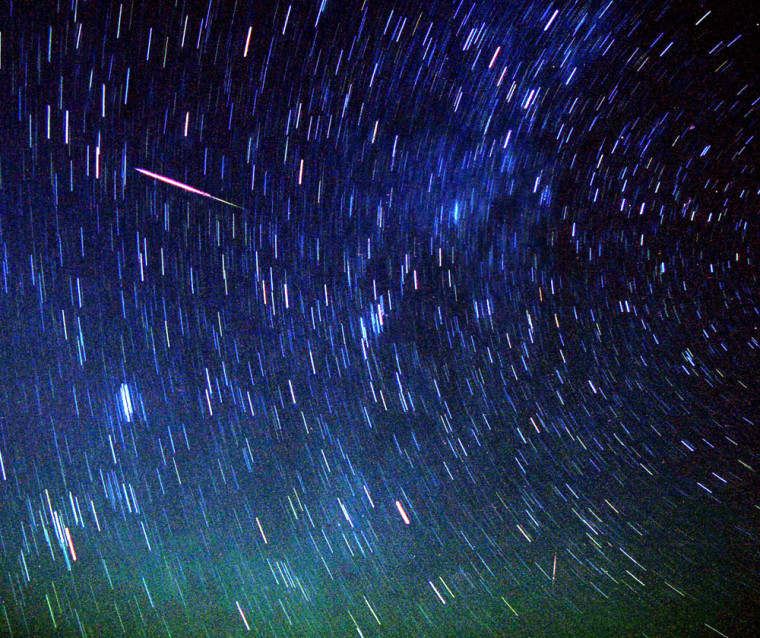For Northern Hemisphere observers, August usually is regarded as "meteor month" with one of the best displays of the year reaching its peak near midmonth.
That display is the annual Perseid meteor shower, beloved by everyone from meteor enthusiasts to summer campers.
But skywatchers beware: You will be facing a major obstacle in your attempt to observe this year's Perseid performance — namely, the moon.
Unfortunately, as luck would have it, the moon turned full on Wednesday, Aug. 9, and will be at a rather bright waning gibbous phase over the next few days, seriously hampering observation of the peak of the Perseids, predicted to occur for the night of Aug. 12. The moon will be hovering below and to the left of the Great Square of Pegasus that night and not all that far from the constellation Perseus, from which the meteors will appear to emanate (hence the name "Perseid"). Bright moonlight will flood the sky through most of that key night and will certainly play havoc with any serious attempts to observe these meteors.
In the 2006 Astronomical Calendar, meteor expert Alastair McBeath concurs: "Sadly, the moon intervenes to spoil the Perseid's best, even if we get clear skies."
The Perseids are already around, having been active only in a very weak and scattered form since around July 17. But a noticeable upswing in Perseid activity began this week, leading up to their peak night. They are typically fast, bright and occasionally leave persistent trains. And every once in a while, a Perseid fireball will blaze forth, bright enough to be quite spectacular and more than capable to attract attention even in bright moonlight.
Even more unfortunate, because the moon was full on Aug. 9, it means that it will always be above the horizon during the predawn morning hours (when Perseid viewing is always at its best) in the few days before the peak. So even the gradual increase in the shower will be spoiled by moonlight. The moon arrives at last quarter on Aug. 15, and thereafter its light becomes much less objectionable, but by that time the peak of the display has long since passed, leaving only a few lingering Perseid stragglers in its wake.
In the absence of moonlight a single observer might see up to 100 meteors per hour on the peak night, a number that sadly cannot be hoped to be approached in 2006. But in 2007, it will be a much different story, as the peak night will coincide with a new moon, meaning that skies will be dark and meteors plentiful.
As they used to say in Brooklyn, when the Dodgers played at old Ebbetts Field: "Just wait till next year!"
